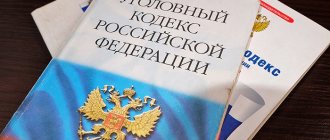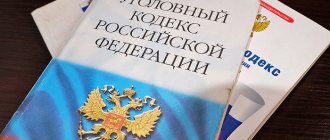Legislative acts of various countries, such as Russia, Ukraine, Kazakhstan and others, provide for liability for committing crimes against sorpority. The Criminal Code of the Russian Federation establishes punishment for such an act as buying stolen goods. Illegal sale or purchase of stolen property is being investigated by the police.
Features of buying and selling stolen goods
In this case, there is no criminal liability, but it will be necessary to prove that the person is truly unaware that the item is stolen. During the investigation of a criminal case, a person can call and ask questions of interest to the investigator. The person will also have to be present at the trial and provide the same information that was recorded in the records by the law enforcement official. It is worth noting that the number of cases in the category related to the resale of property is small. In this case, it is quite difficult to identify the person who sold the stolen goods.
It is difficult to prove the fact that a person is aware that his purchase is an item that was stolen from someone, especially when the purchase takes place in a pawnshop, market or stores selling used goods. In this case, the buyer may face a fine or, most often, confiscation of the item.
Judicial practice in 2022
Property obtained through criminal means is not always stolen property. The criminal origin of property may imply its illegal trafficking, lack of documents for the acquired property, violation of the rules of transportation across the border, etc.
One way or another, the purchase or sale of such illegal goods falls under Art. 175 of the Criminal Code of the Russian Federation.
Most of the cases involving the purchase of stolen goods, of course, relate to pawnshops. Many of them operate specifically in the illicit trafficking of criminal goods.
Sometimes pawnshops form a network of criminal organizations even throughout Russia. No matter how often pawnshops are closed by court decisions, they consistently reappear and function.
Often in practice there are criminal cases involving the purchase of illegal alcoholic beverages. Such alcohol does not have accompanying documentation; taxes have not been paid for it.
Sometimes it is even dangerous to human health. As a rule, a monetary fine is imposed for single episodes of purchasing such property.
Explanations regarding the application of Art. 175 of the Criminal Code of the Russian Federation are reflected in Resolution of the Plenum of the Armed Forces of the Russian Federation dated July 7, 2015 No. 32 “On judicial practice in cases of legalization of funds or other property acquired by criminal means, and on the acquisition and sale of property known to be obtained by criminal means.”
Buying stolen goods is a crime that complements other types of criminal offenses. This is a derivative of thefts, robberies and assaults, which require the urgent sale of stolen property.
Buyers contribute to the concealment of criminally obtained property, interfering with the detection of crimes, and must be punished properly for this kind of assistance.
The purchase and sale of stolen goods is punishable by the Criminal Code of the Russian Federation to the fullest extent of the law. The very concept of “buying up stolen things” is now known to almost any average person, since such a concept is found in detective books, films, and is also quite logical and understandable at the everyday and everyday levels.
In the real world, criminal cases under Article 175 of the Criminal Code are not initiated very often, and even less often they are sent to court to find a person guilty. This is primarily due to such a feature of the crime as proof of the person’s knowledge that the property acquired by him was in fact stolen.
Corpus delicti
The sale of stolen goods can be characterized through the prism of the elements of an unlawful act. It includes:
- The objective side, which is expressed in the sale or acquisition. In the latter case, the thing can be received in various ways, including through the conclusion of purchase and sale agreements, donation, etc. To assess what was done, it does not matter whether the acquisition was officially formalized or not. If an agreement is concluded, it is recognized as void on the basis of civil law. By sale, the legislator understands the fact of transferring a thing into the possession of another person. At the same time, it switches to both paid and gratuitous grounds.
- The subject is property that was unlawfully taken from the owner’s possession.
- The subjective side includes the presence of direct intent. That is, the person knew that he would buy stolen property, but this fact did not stop him.
- When a temporary acquisition (for example, rent) or sale was made, there is no element of the act in question.
- The object is the order that must be observed during the sale of things.
- Subject is a person who, at the time of the commission of the act, has reached the age of sixteen. In this case, an important condition is that he should not steal the thing. Otherwise, the assessment is carried out according to another norm of the Criminal Code of the Russian Federation.
In practice, acquisitions are divided into two groups. These include:
- unpromised;
- promised.
Important! Liability under Article 175 of the Criminal Code of the Russian Federation is provided only for an unpromised type of acquisition. If one person wanted to steal property, and another promised that he would buy this thing, the offense is classified as complicity. The verdict refers to Article 33 of the Criminal Code of the Russian Federation.
Proof that the act is completed is the fact that the property has passed into the possession of another person. In this case, the rights to use, possession or disposal can be transferred.
Complicity in crime
It is worth distinguishing the concept of purchasing stolen goods from complicity in the commission of a crime of criminal acquisition of property.
Complicity in a crime involves a promise to purchase a stolen item given in advance (complicity) or an order to steal a certain valuable item for a third party who is an accomplice (organizer, customer).
Not every criminal involved in the sale of stolen goods will betray his accomplice, since in this case he himself will personally suffer greater punishment, i.e. will be charged under Part 2 or Part 3 of Article 175 of the Criminal Code.
Shadow schemes for the sale of illegally acquired property are used by criminals. They may try to pass off the item as legitimate without buyers even knowing about it.
But if the item is wanted, ignorance will not always help avoid responsibility. Which article establishes the punishment for buying stolen goods in Russia?
Qualifying features
As a rule, the first parts of the articles of the Criminal Code prescribe responsibility for an act that does not have these characteristics. The subsequent parts reflect greater responsibility. Article 175 of the Criminal Code of the Russian Federation has 3 parts and contains four qualifying criteria. These include: Committing a crime by a group that is based on a preliminary conspiracy. There must be at least two accomplices. The peculiarity of the feature under consideration is that an agreement was reached between them before one of the subjects began performing acts included in the objective side. Participation involves group members acting as a whole.
The criminal act was committed in relation to oil products, machinery or other property and resulted in a large amount of damage. According to the note to Article 170.2 of the Criminal Code of the Russian Federation, an amount that exceeds 2 million 250 thousand is regarded as damage.
The act is committed by a group that is organized. In this case, the objective side can be performed by one participant, the rest are intended to perform other functions.
The criminal used his official position.
Judicial practice on the purchase of stolen goods in accordance with Art. 175 of the Criminal Code of the Russian Federation
Let's look at 2 cases of legalization of property obtained by crime:
- The entrepreneur of a retail grocery store, realizing the danger and illegality of his act, bought several boxes of alcoholic products on the market from a dubious person without attached documents determining the safety and legitimacy of the products. Under Article 175, the defendant was fined 10 thousand rubles.
- The defendant stole the phone and tried to sell it to a pawn shop. After the fact of the crime was revealed, during the court hearing the offender received a punishment of 80 hours of compulsory labor.
Today, buying stolen goods, smuggling money, tobacco and alcohol, as well as similar crimes, alas, are not uncommon. They undermine the economic condition of the state as a whole and each of its citizens in particular.
The following video will tell about another case of application of Article 175 of the Criminal Code of the Russian Federation:
What is the punishment?
The perpetrator may face various types of punishment, which depend on which part of the article the qualification is made under. In the first part of Art. 175 of the Criminal Code of the Russian Federation talks about the liability of a person who did not promise in advance to purchase or sell an item that a person would steal. The amount of punishment is expressed in a fine, the amount of which reaches 40 thousand rubles. The court may also decide to set the amount of the fine based on how much income the offender receives per quarter.
Works that are mandatory are also applicable. They are installed for a maximum of 480 hours. Forced or correctional labor is assigned for a period of up to 24 months. The perpetrator may be imprisoned for the above period.
If there are qualifying criteria that were described in the section above, the size of the penalty increases. In part two, the assessment is given to a group of persons in a conspiracy that is preliminary in nature and large in size. In the third part - the use of official position and an organized group. The fine increases to 80 thousand rubles, and imprisonment - up to seven years.
Possible liability
Article 175 of the Criminal Code of the Russian Federation includes three separate parts, each of which provides for its own types of punishment and their amount. So, according to the first part, i.e. for the acquisition or sale of stolen property by a person who has not promised in advance to carry out such actions, punishment may be applied in the form of a fine (no more than 40,000 rubles or in the amount of income for no more than three months), compulsory labor (no more than 480 hours), correctional works (up to 2 years) or a real term of imprisonment for the same time.
Additional information A fairly common occurrence is the theft of phones and their subsequent sale. To protect yourself from gadget theft, you should handle the gadget carefully, do not leave it in visible places, and do not carry it in places accessible to thieves (for example, in the open outer compartment of a bag, etc.). Read more in this article
If the same actions are committed not by one person, but by a group, or in relation to products of the oil refining industry, a car or other property on a large scale, then the minimum punishment is restriction of freedom for a term not exceeding three years, while the most serious is imprisonment for up to 5 years with payment of a fine in a specified amount or a certain amount of wages.
The above acts committed by an organized group or someone using their position in accordance with their position will entail one of the following types of punishment:
- forced labor (no more than 5 years) plus restriction of freedom for up to 2 years or without it;
- imprisonment (not more than 7 years) with an additional penalty of a fine of up to 80,000 rubles or earnings of up to six months, as well as with or without restriction of freedom for 2 years.
When qualifying criminal actions under this article, the purpose of acquiring stolen or otherwise illegally obtained property does not matter: a gift to third parties, personal use of the item, subsequent resale, etc. The article on purchasing stolen goods in Russia will be applied only in the case where the buyer knew that he was buying an item obtained in bad faith, but received in the course of carrying out the objective side of the crime.
Features of the criminal act
Criminal penalties for buying stolen goods are imposed upon proof of intent in the actions of the buyer. If you unintentionally acquire such goods, you will not be punished under Article 175 of the Criminal Code of the Russian Federation, but the stolen items will be confiscated. Therefore, the buyer will lose money. Therefore, it is worth carefully studying the seller’s ownership rights to the goods.
The application of Article 175 does not occur often because:
- It is difficult to prove intent in acquiring a stolen item; the subject of the act denies guilt.
- It is difficult to prove that an item was stolen, since it changes many owners.
But in relation to criminals who deliberately sell stolen items and persons who purchase them knowing about the criminal origin of the goods, this norm of criminal law is in effect.
Object and subject of the crime
The object of the purchase of stolen goods is considered to be relations for the acquisition and circulation of things within the framework of the law. Subject – any property the circulation of which is not limited by law.
In the case of the acquisition and sale of illegal items (restricted in circulation), liability arises under special articles (for example, under Article 228 for drug trafficking).
Objective side
The crime under Article 175 of the Criminal Code of the Russian Federation for buying stolen goods is committed in the form of an action. The interpretation of the concept of “acquisition” is as broad as possible - any method of acquisition, be it purchase, receipt as a gift, transfer to pay off a debt.
The transfer (sale) can be gratuitous or compensated, which is not essential for qualifying the crime.
At the same time, the person who purchased stolen goods should not participate in the commission of a crime, and the sale of property should not be promised to him in advance. In these cases, he is considered an accomplice, for which liability is provided under other articles of the Criminal Code of the Russian Federation.
Subjective side and characteristics of subjects
The subject may be a legally competent, sane citizen of at least 16 years of age who has not taken part in the crime of taking possession of purchased items. The subjective side is the deliberate acquisition of stolen goods. It is enough to know that things were stolen without knowing the details of the crime for this to be qualified as intent.
Have a question for a lawyer? Ask now, call and get a free consultation from leading lawyers in your city. We will answer your questions quickly and try to help with your specific case.
Telephone in Moscow and the Moscow region: +7
Phone in St. Petersburg and Leningrad region: +7
Free hotline throughout Russia: 8 (800) 301-39-20
Is crime a form of money laundering?
There are a number of ways to give illegally acquired property a legal appearance:
- Placing money in bank accounts under the guise of savings.
- Purchasing expensive things.
- Changing the appearance of illegal property (change of car license plates, etc.).
Such actions fall under Articles 174 (for the legalization of other people's income) and 174.1 (for the legalization of one's own). However, Article 175 for purchasing stolen goods does not apply to these crimes.






